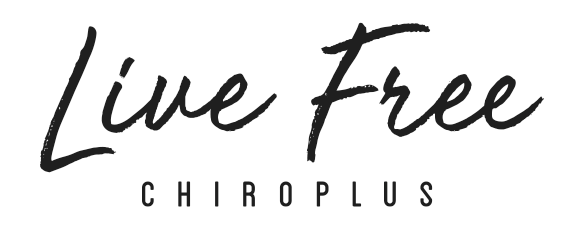Mind—Body Connection
As you might have seen in our last newsletter, I had the amazing opportunity to receive my certification in Neuro-Emotional Technique (NET). It was a 5-day intensive seminar jammed packed with knowledge about this amazing technique that ended with 2 tests (one practical exam and one written exam). At the end of the week, I had learned so much about our mind-body connection and how to address it. I know it has made me a better practitioner to go through this process and am very blessed to be a part of this amazing community of people. With that being said, there were a few takeaways I want to share with you about this mind-body connection we all have and give you some research insight into how it truly affects us.
Our brain functions out of three states: the unconscious, subconscious and conscious. Our survival instincts reside In our unconscious brain. Things like breathing, heart rate, hunger all the things that keep us alive on a daily basis. They are something that we don’t have to think about. Our conscious state is where we find our thinking and deduction abilities. This is also where we find reasoning, language, invention, and understanding. The subconscious brain is where our memory and emotions are. There is no time in the subconscious. All that ever was simply is and exists to us now. What that means is, something that affected us when we were a child can and will affect us in the present day, just as if it happened right then. We don’t have the exact same conscious response as we did when we were a child because our brain is more developed but our subconscious doesn’t care how old we are. Our nervous system will respond in a very (or exact) similar way because that was the way we survived. This phenomenon is now shown in published research within the context of NET.
The (NET) study consisted of patients with a prior cancer diagnosis with traumatic stress symptoms. These patients were told to audibly tell their cancer story while they received a functional MRI of their brain. These initial scans showed a significant increase in activity in the parahippocampus and brainstem. The parahippocampus is where we have retrieval and encoding of memories. The brainstem controls motor movement, balance, equilibrium, and muscle tone. What this research tells us is that when we talk about or even think about a past (traumatic) event, our subconscious part of our brain will activate and can affect our mental as well as our physical body. With that, the pain in your neck or back that won’t go away with just bodywork? The reason could be attributed to a stress/memory component to that physical issue. This happens to us daily without our awareness. We try to control this with our conscious brain and tell ourselves that the stress or that specific memory doesn’t ‘bother’ us. But, there is now evidence suggesting that we are 80% non-conscious when it comes to our nervous system functions. We can try to reason it away all day long but our subconscious will simply go into survival mode and overtake the conscious most of the time. Our adult brain can reason away the memory. Saying that it doesn’t affect us anymore but when our subconscious takes over, it doesn’t matter what our adult brain thinks. It still thinks we are a younger version of ourselves that had a hard time dealing with that memory or event. It will go into survival mode and respond very similarly to how we responded originally to the event. How fascinating are our brains?
So, what does this research mean for us in our everyday life? My clients have become accustomed to hearing me say over and over again that we at Live Free strive to treat the physical, chemical, and emotional/stress of the body. We want to find the root of the pain that you are experiencing. Even in Paul’s sessions with his clients, a large part of the session is spent talking about the mental barriers to our physical health. He understands the science and importance of the mental nervous system (plus, his wife talks his ear off about this nonstop…he is such a good sport with me!) and will incorporate that into his movement protocols. How many times can you recall experiencing a mental barrier when it comes to working on your health or starting an exercise regimen? I know I have. That is why Paul and I both stress this in our sessions. If we keep doing the same things and expecting different results, how will we ever get better? It is why we are big proponents of working on our mental health. Whether it is talking with a counselor/therapist/pastor, finding someone who does mind-body work like NET, or working with someone who understands the mental barriers we carry (i.e. Paul’s Movement Sessions), this is an important step that we have to address in our lives.
We want to help you grow into better human beings every day and this is another daily step to getting to that point. Find what you need to work on in your life. You will be better for it, I guarantee it! — Dr. Crystal
https://mailchi.mp/5df39df08c96/livefreechiroplus
Want to receive this blog straight to your inbox? Sign up for our monthly newsletter!
Are you following us on social media?




